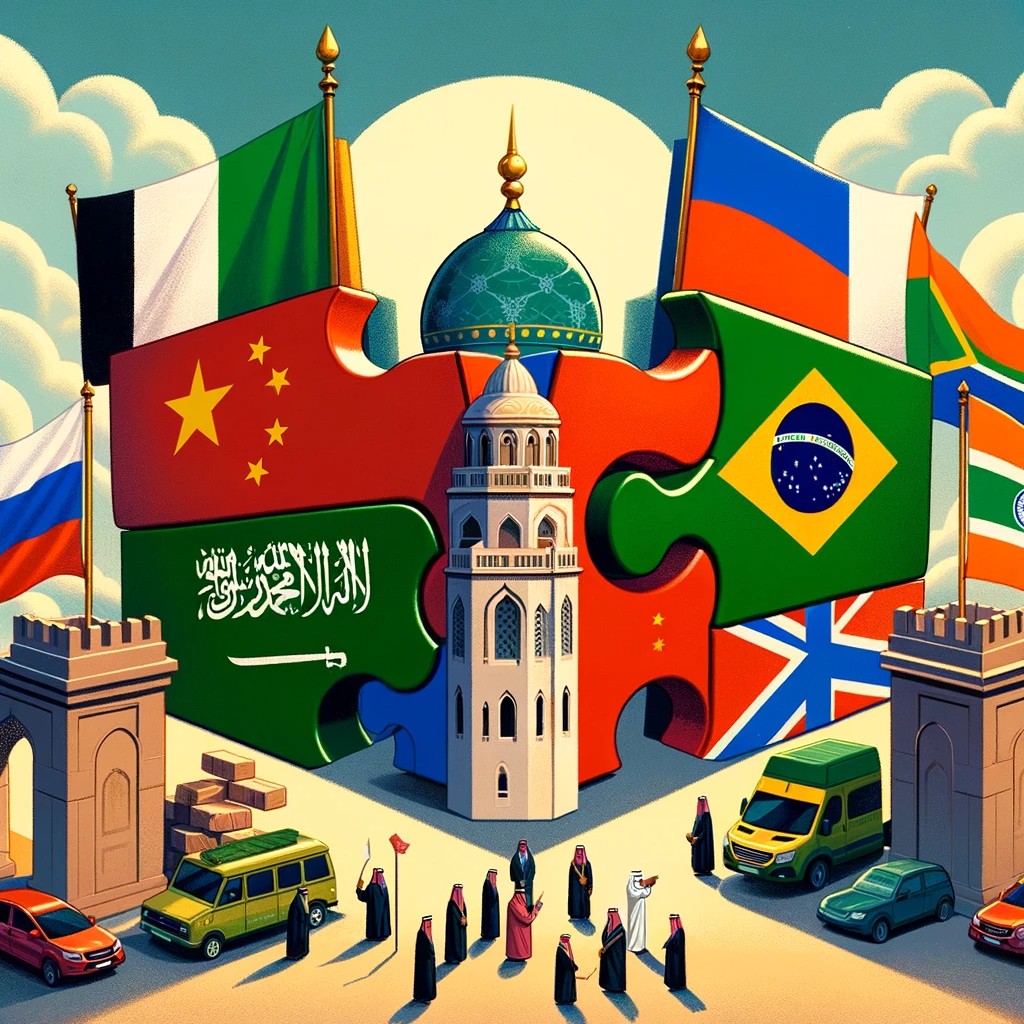Saudi Arabia’s engagement with the BRICS group has become a riveting saga in international relations. Despite being courted by the bloc last year, the Kingdom’s decision remains shrouded in strategic calculations and geopolitical maneuvering.
Saudi in BRICS: Assessing the Benefits, Weighing the Options
The Kingdom, perched at the crossroads of global power shifts, is meticulously evaluating its invitation to join the BRICS consortium. This group, encompassing economic powerhouses like China, Brazil, Russia, India, and South Africa, extended an olive branch to Saudi Arabia, the United Arab Emirates, Egypt, Iran, Argentina, and Ethiopia. Interestingly, while Argentina opted out, the Kingdom’s response is still pending.
Saudi’s economic ties with China and India, the bloc’s heavyweights, undeniably make the invitation alluring. Riyadh’s major trading relationships with these nations hint at potential economic boons that BRICS membership could bestow. However, it’s not just about economics; it’s a balancing act on the tightrope of international diplomacy.
The Kingdom’s response is being sculpted against a backdrop of heightened geopolitical tensions, particularly between the U.S., China, and Russia. Saudi Arabia’s historically robust relationship with the U.S. is being reevaluated, as Riyadh senses a shift in Washington’s commitment to Gulf security. This reevaluation is driving Saudi Arabia to explore new alliances and assert its strategic autonomy.
Political Implications and Global Dynamics
In the midst of these developments, BRICS has been undergoing a significant transformation, evolving from an economic group into a more comprehensive association representing the interests of the Global South. This transformation has been marked by the inclusion of new members, reflecting a shift towards a broader representation of emerging economies and nations. The bloc’s August summit, attended by over 60 countries, was a clear indicator of this change.
Notably, the COVID-19 pandemic highlighted the divergent approaches of BRICS nations and the Western world in responding to global crises. Countries like Russia, China, and India swiftly provided vaccines and medical supplies to Global South nations, in stark contrast to the export restrictions imposed by many Western governments. This discrepancy has further fueled the perception of partiality and the need for a more inclusive and representative global order.
Faisal Alibrahim, Saudi Arabia’s economy minister, confirmed the ongoing deliberative process, reflecting the Kingdom’s cautious approach to international commitments. The decision is not just a mere addition to Saudi’s diplomatic portfolio; it’s a pivotal move in a global chess game of power and influence.
The BRICS expansion signifies more than just economic collaboration; it embodies the rising voice of the Global South. The inclusion of more nations, notably from the Middle East and Africa, underscores the bloc’s ambition to challenge the traditional global order, tilting the scales towards a more multipolar world.
Meanwhile, the UAE’s decision to join BRICS, primarily based on economic rationale, adds another layer to this complex narrative. It illustrates the emerging trend of Gulf nations diversifying their global alliances beyond traditional Western-centric partnerships.
In the broader context, BRICS’s evolution marks a significant shift in global dynamics. The coalition is progressively seen as a counterweight to Western hegemony, symbolizing the aspiration for a more equitable world order. The proposed introduction of a new BRICS currency, challenging the dominance of the US dollar, is a testament to this changing tide.
Saudi Arabia, at this juncture, stands as a key player whose decision could significantly impact the future trajectory of BRICS and global power politics. The Kingdom’s move is more than an economic decision; it’s a statement of geopolitical intent and strategic positioning.





